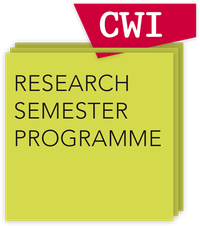
Register before 25 September for the AUTUMN SCHOOL
Overview
Uncertainty quantification (UQ) aims at establishing the reliability of predictions made by computational models. Such models are often fully deterministic, yet are used to make predictions of an uncertain reality. The discipline of UQ consists of numerical and statistical methods for quantifying uncertainty in real problems due to both epistemic uncertainty (lack-of-knowledge) and aleatoric uncertainty (true randomness) in physical and model parameters, boundary and initial conditions, model form, or even uncertainty caused by finite-precision floating point calculations. UQ also offers a mathematical framework for exploiting experimental data to inform models (data-assimilation) and solving inverse problems. However, the applicability of UQ solution concepts is challenged by the cost of a single model evaluation, the high dimensionality of the (parametric-and data-) spaces in which UQ problems are often posed (curse of dimensionality), and the resulting high-dimensional, dependent probability distributions that must be represented.
Aim
In this context, the aim of the proposed program is to introduce the topic of UQ to a wide range of researchers, and to bring together both national and international UQ experts. We intend to invite a mixture of colleagues from industry, and academia, and we also want to have a combination of young, and more experienced researchers.
Topics
- (High-dimensional) forward uncertainty propagation
- Inverse UQ and data assimilation
- UQ software and HPC scalability
AUTUMN SCHOOL -7-11 October
(CWI) Autumn school / hackathon: Form the next generation of UQ researchers by organising a practically-minded autumn school with associated hackathon.
Confirmed lecturers: Vesa Kaarnioja (FU Berlin), Derek Groen (Brunel), Rob Scheichl (Heidelberg), Elisabeth Ullmann (TU Munich), Wouter Edeling (CWI)
Register before 25 September for the AUTUMN SCHOOL
For more information, please contact Wouter Edeling
